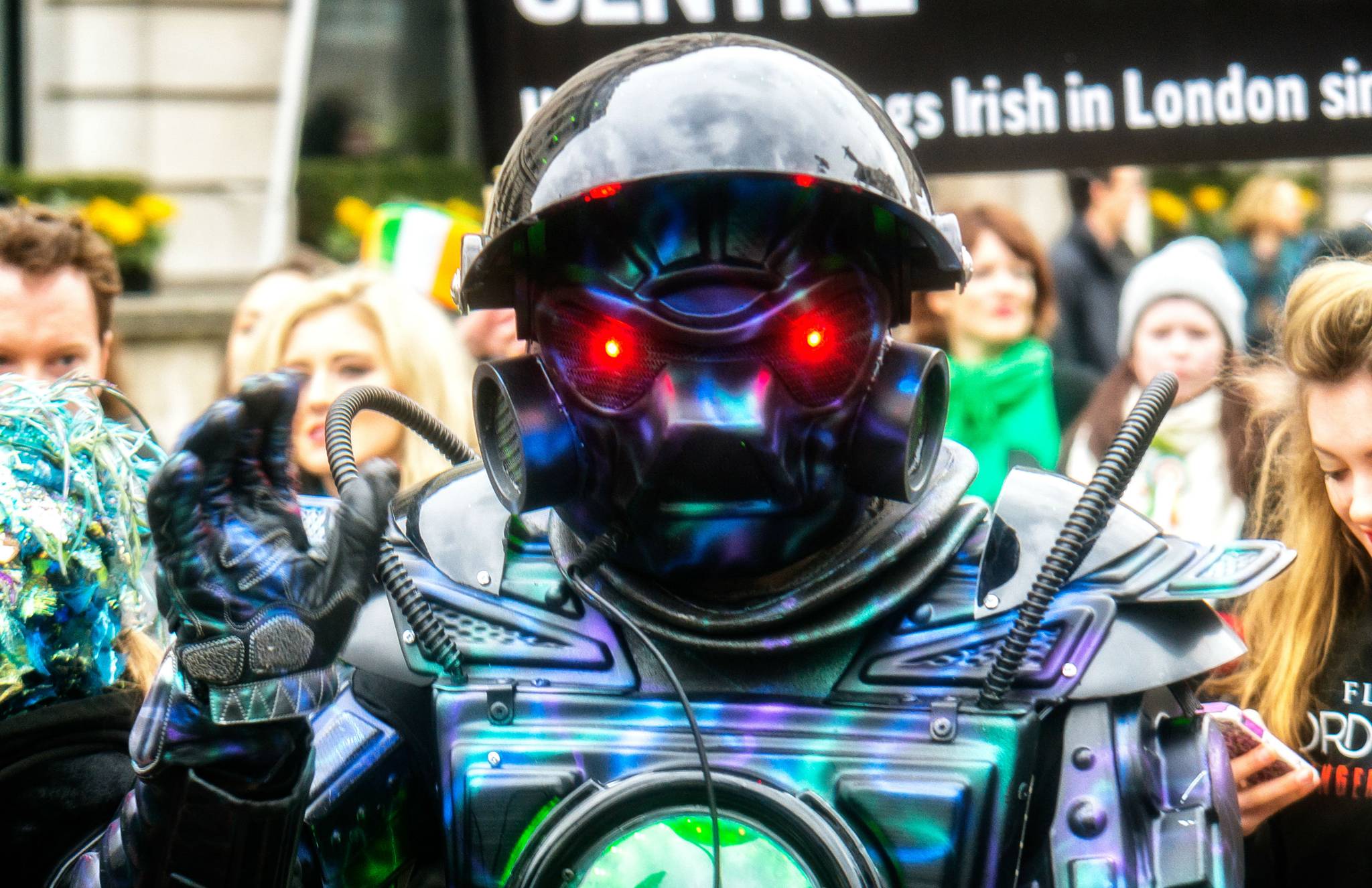
Would you trust an algorithm to book your dinner reservation? To drive a taxi? What about to govern your world? The past year has seen worldwide trust in government fall to an all-time low, and a generation has reportedly lost faith in democracy. Given these shifts, are people still attached to the way their societies are led, or is there room for technological improvement? At Mindshare’s 2017 Huddle – the industry-renowned ‘unconference’ – we invited tech theorist Tom Chatfield and AI strategist Adelyn Zhou to discuss the research around perceptions of AI, asking whether people will ever vote the technology into government?
In a post-human era in which algorithms can determine the most effective system of governance and calculate the most likely course of action to avoid war and famine, what’s to stop people from putting one in charge? For Mindshare’s 2017 Huddle, industry experts and academics turned their lens on this hypothetical future. We discussed the prospect of uploading digital replicas of ourselves to the cloud – from our visual memories to blueprints of our biology. We considered how disability and inefficiency could be eliminated through biohacking. But one question stood out to Canvas8: what would happen if humans were given the choice to give up control of the world?
The figures suggest that relinquishing control is on the table. In a year of surprising political outcomes in democratic societies, young people feel disenfranchised and are questioning the systems that are currently in place. According to results from the World Values Survey, younger citizens of stable democracies not only take their governments for granted, but no longer consider democracy a political necessity at all. While 72% of Americans born before World War II believe that living in a democracy is essential, only 30% of Gen Yers feel the same.
For this year’s Huddle, we sat down with tech author Tom Chatfield and AI strategist Adelyn Zhou to get to the bottom of the question. Would you vote for an AI president? Both sides made their case, while Canvas8 explored the behavioural science behind people’s attachment to democracy, and their relationship to government, technology and trust.
People have complicated feelings around AI. Research from the Pew Research Center found that while 41% of Americans would use a robot caregiver, 44% are excited about their development. Presumably, the last 3% are fascinated by the technology, but wouldn’t want to put their own lives in robotic hands. This suggests that people are happy for AI to relieve them of responsibility – as it would by caring for society's elderly population – but they’re not so keen for it to rob them of control – which would be the case if they depended on a mechanical caregiver themselves.
It comes down to an issue of faith in AI to deliver on its promises, and self-driving cars are an effective barometer of this confidence – or lack thereof. Despite 94% of road accidents being caused by human error – a danger that autonomous vehicles would easily wipe out – 57% of Britons are still worried about travelling in a driverless car. What does this tell us about where we place our trust, and what will this mean when AI tries to take the wheel in government?
As of now, there’s not much stopping us from putting a machine in power – theoretically, the technology exists already. A group of researchers at MIT embarked on a project to tackle the challenge of programming an ethical machine, creating an AI that made moral decisions mirroring real people’s votes on what would be most ethical. But does that really solve the problems younger people have with democracy? Reflecting the outcomes of existing systems may not be what citizens want. Majority groups can – and often do – dominate at the expense of minority and special interest groups who are pushing for better representation.
Additionally, if people did put an AI in charge, are our expectations of immediate service and instant gratification unrealistic when it comes to the mechanisation of government? Part of the appeal of AI is that it can calculate every potential outcome of an action before making a choice, at a speed that would be impossible for humans – so this may not be an issue. But perhaps the biggest problem is that we humans wouldn’t be able to keep up, and once AI is elected into government, could it ever be ousted? A look at people’s learned dependence on other forms of technology makes this seem unlikely; Google Maps is used by one billion people every month, and we have become so reliant on GPS tech that we’re losing our natural sense of direction. Is governance, too, a use-it-or-lose-it skill?
James Fox is a Senior Behavioural Analyst at Canvas8, which specialises in behavioural insights and consumer research. A news and social media addict, and nerd to the core, when she isn’t arguing with people on Twitter, she’s usually obsessing over datasets or learning how to fix, make and do things for herself.



